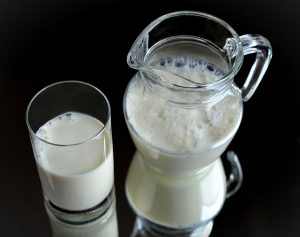Countless books have been written about the perfect diet and how to lose weight. Many of these books are less than scientific and contain a number of myths that have made it into popular culture where they are now taken as fact. There are certainly proven things that we can do over the course of our lives that provide the proper combination of nutrition and exercise to lose weight and stay fit. Rather than list them we thought it was a good idea to debunk some of the diet myths that you can stop worrying about.
You need to detox your liver with cleanses.
Detoxifying your liver or “cleansing” your colon with coffee enemas is ineffective at best and highly suspect as the body has a pretty efficient detoxifying system set in place in the liver, kidney, and spleen. You can forget those juice cleanses because there is no widely accepted scientific evidence that juice helps these systems do their job more efficiently.
It’s important to understand that these systems in the body do need nutritional support to do their jobs, which means the act of fasting is counterproductive in many ways. That’s because fasting deprives the liver of amino acids (cysteine, glutamine, and glycine) that are important to this natural detox process. These important amino acids make toxins more water soluble, which allows them to be eliminated through bile.
The growth hormone in milk can cause health problems.
It is true that some segments of the dairy industry use growth hormone to increase milk production and may be present in milk in small amounts. The truth is that GH is a protein molecule and, once ingested, it gets broken down into its constituent amino acids, which is not unlike any other protein that we ingest that enters our digestive system. In addition, the growth hormone is made for bovines and therefore has no effect on humans.
Whole milk is evil and soy is all good.
The supposed evils of milk fat such as it raising cholesterol levels or hardening your arteries has led many people to skim milk or non-fat milk. The most recent research shows that people that drink whole milk and indulged in moderate amounts of high fat dairy are less likely to get fat than those that choose low fat versions.
Researchers believe tha t this is because high-fat milk contains some bioactive substance that may alter the metabolism in a way that helps use fat and burn it for energy. Research may be pointing to that substance being conjugated linoleic acid (CLA), a fatty acid that has long been identified as a fat burner.
t this is because high-fat milk contains some bioactive substance that may alter the metabolism in a way that helps use fat and burn it for energy. Research may be pointing to that substance being conjugated linoleic acid (CLA), a fatty acid that has long been identified as a fat burner.
Furthermore, researchers have found that saturated fatty acids contained in whole milk have virtually no role in contributing to heart disease in and of itself. In fact, whole milk contains a fatty acid that is healthy for the heart known as oleic acid, which is also what gives olive oil its heart healthy properties. Furthermore, by choosing skim milk you lose the fat soluble vitamins like A, D, E, and K.
Soy protein on the other hand, isn’t as miraculous as some make it out to be. Contrary to common belief, it does not stimulate muscle protein synthesis nor does it lower Testosterone levels. Recent studies have shown that soy has minimal effect on muscle protein synthesis (MPS).
“Hormone free,” “free range,” and “farm raised” chickens are better for you.
Although looking at labels when attempting to eat healthy is always a good thing it is no surprise that some labels are misleading. For instance, the “hormone free” label on chicken is unnecessary and misleading since the use of hormones in poultry is illegal. For evidence and explanation, just look here and here.
The “all natural” label on chicken is also irrelevant as the FDA does not allow any artificial ingredients or preservatives in chicken or any other foul found in grocery stores in the U.S. That brings us to labels like “free range” and “farm raised,” which tell consumers nothing about the actual environment in which the chicken lives so it can be wildly misleading.
Eating only nutrient-dense foods keeps weight down.
The belief that you need to get all of your micronutrients in one day is another myth that needs dispelling. The problem arises in the fact that people that try to get their nutrients in every meal tend to dramatically boost their caloric intake, which leads to weight gain. The reality is that you are better off getting your nutrients over several days or even a week to keep from overloading on calories. Remember that the body stores many vitamins for later use.


